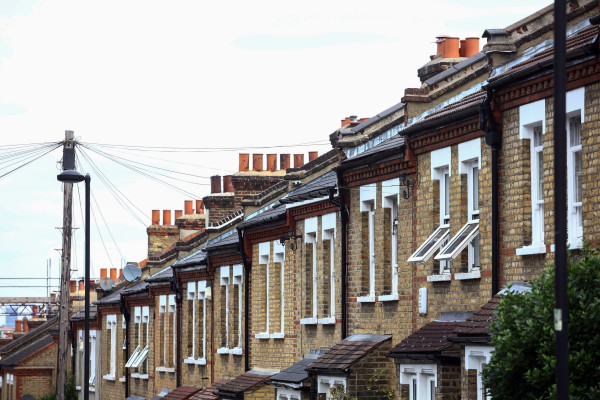

Policymakers should consider using stamp duty, income tax and even council tax relief to incentivise UK homeowners to improve the energy efficiency of their homes, a UK think tank suggests. Frontier Economics has set out ambitious and comprehensive proposals for improving the energy efficiency of UK houses in its report ‘Affordable warmth, clean growth’.
Drawing on previous research, the firm points to progress in energy-efficiency measures in lighting, appliances, heating systems and insulation that have led to significant benefits in UK households.
It says that between 2004 and 2015, annual gas consumption fell by 37 per cent for a typical dual fuel household, while electricity usage dropped 18 per cent. This was seen despite a significant rise in the number of household appliances.
However, the organisation notes that progress has now stalled in the UK thanks to changes in government energy-saving programmes.
The discontinuance of initiatives, particularly in England, such as the Green Deal, Warm Front and Zero Carbon Homes has led to a “policy gap”, which has contributed to an 80 per cent decline in domestic efficiency measures being installed in UK homes between 2012 and 2015.
The study calculates that cost-effective investment in residential energy efficiency and low-carbon heating over the next 20 years could reduce energy demand by 25 per cent. Based on current energy prices, that represents average household annual savings on energy costs of £270 a year – an energy saving equivalent to the annual output of six nuclear power stations.
Barriers
Frontier Economics argues that linking energy to stamp duty would provide a financial incentive for improvements, and create a connection between energy efficiency and the value of a home. A reduction could apply if vendors undertake work before selling, and buyers could be given a year after purchase to improve the property’s energy assessment and consequently claim a discount.
A council tax rebate for evidence of energy improvement in a property would mean that all households were incentivised, not just those planning to buy or sell. But this would be difficult to implement in a revenue neutral way.
An income tax relief scheme based on salary sacrifice could also be considered, whereby a payment for energy-efficient upgrade work up to a certain level would be made by the employer to the contractor.
The employee would repay the money in monthly instalments through salary sacrifice, resulting in national insurance savings for both employee and employer on top of the income tax savings for the employee.
The proposals include the setting of minimum targets for all homes. All new homes would be built to the zero carbon standard, and the homes of those on low incomes would be “retrofitted” to improve their energy performance certificate (EPC) rating. This would make a vital contribution to the reduction of fuel poverty.
Other homes would be expected to achieve a C rating by 2035. Table 1 shows that around 19m homes have an EPC rating lower than C.
Table 1: Number of homes below energy performance certificate rating C
| England | Scotland | Wales | N. Ireland | UK | |
| Proportion of homes below EPC C (%) | 72 | 63 | 75 | 71 | 71 |
| Number of homes below EPC C (000s) | 16,294 | 1,542 | 1,052 | 497 | 19,262 |
Source: Frontier Economics, based on analysis by E3G. Copyright: Money Management
One important benefit of the proposal, the think tank suggests, is that it would reduce the need for more costly emissions reductions elsewhere. It is also anticipated to support up to 100,000 additional full-time skilled jobs between 2020 and 2030.
Government projections for emission abatement, published in March 2017, suggest the UK is not on track to meet its carbon budgets, and predict that emissions from the domestic residential sector are set to rise by 10 per cent by 2035.
Addressing the plan to retrofit existing housing in the foreword to the report, Lord Deben sums up the thinking behind the proposals. He says: “The excuse for not dealing with current construction is always that the real issue is the existing housing stock. But that’s no reason to continue to make things worse.”



